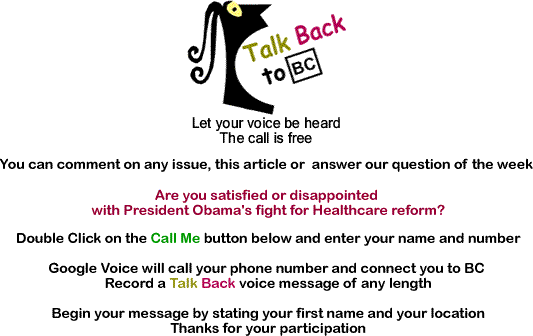
Michael
Vick, the Washington Red Skins and Black Concerns
The African World
By Bill Fletcher, Jr.
BlackCommentator.com Executive Editor
Let me be clear from the outset: I believe in redemption. I believe that most human beings have the capacity to rise above errors and crimes that they have committed and find a new path. As such, I believe that now Philadelphia Eagles quarterback Michael Vick has paid for his crime of engaging in the sick sport of dog-fighting and should be allowed the opportunity to play football and live outside of a cloud.
That said, I must confess that I am fit to be tied by the amount of attention that Vick’s case has received both within the mainstream media as well as within Black America. More to the point, the level of concern for Vick demonstrated by many African Americans seems WAY out of proportion to his significance and to antipathy showed toward him by many sports fans.
The recent statements and actions by some NAACP leaders is what really sent me over the top. Of all the things to speak out on and/or hold a demonstration around, to choose Michael Vick seems like someone got their priorities out of order. We are in the midst of an economic crisis unlike anything we have experienced since the 1970s and the 1930s. There are unjust wars being conducted by the US in Iraq and Afghanistan. There is an intense battle for healthcare reform underway and a needed battle around environmental destruction, and yet we spend all of this time on whether Michael Vick should play professional football?
If the answer to this question is “yes,” then, Black American sports fans, let’s shift our sites to another matter in sports, a matter around which there has been a continuing injustice, and one to which few African Americans have spoken: the name of the Washington professional football team [the Washington Redskins, for those of you who do not follow football]. Yes, sisters and brothers, if we are truly concerned with injustices in the wide world of sports, we are missing the boat with a focus on Michael Vick. How about the fact that the owners of the Washington Redskins continue to refuse to change the name of their team despite the fact that Native Americans and their allies have regularly and loudly noted that the name “redskin” is an insult to Native Americans on par with words such as the “N” word?
If we are truly interested in injustices in sports, why is it that so many African Americans remain completely and totally silent about this controversy? Worse, we enthusiastically embrace the Washington Redskins, their name, their logo, etc., without the slightest bit of guilt or remorse.
In this light I believe that the outpouring of concern for Michael Vick is just short of pathetic. Sure, give the brother another chance to play. But is that really on par with having the name and logo of a national football team that every day reminds Native Americans that they do not count? What does it say about us—African Americans—that we are prepared to be complicit in such a display?
If the Philadelphia NAACP and other NAACP chapters are concerned about the future of Michael Vick, so be it. If they believe that in light of everything facing Black America that this issue must be brought to the surface, God bless them. But if they do not wish to fall prey to hypocrisy then I would suggest that their concerns and those of other African Americans who worry about Michael Vick be expanded to a much deeper examination of race in sports. Let’s look at the names of teams that denigrate Native Americans. Let’s look at the declining number of native born African Americans in Major League baseball. Let’s look at the anemic numbers of people of color in executive positions in sports teams across the board.
And let’s leave Michael Vick to play football.
BlackCommentator.com
Executive Editor, Bill Fletcher, Jr., is a Senior Scholar with the Institute for Policy Studies,
the immediate past president of TransAfrica Forum and co-author of, Solidarity Divided: The Crisis in Organized Labor and a New Path
toward Social Justice ![]() (University of California Press), which examines the
crisis of organized labor in the USA. Click here
to contact Mr. Fletcher.
(University of California Press), which examines the
crisis of organized labor in the USA. Click here
to contact Mr. Fletcher.


